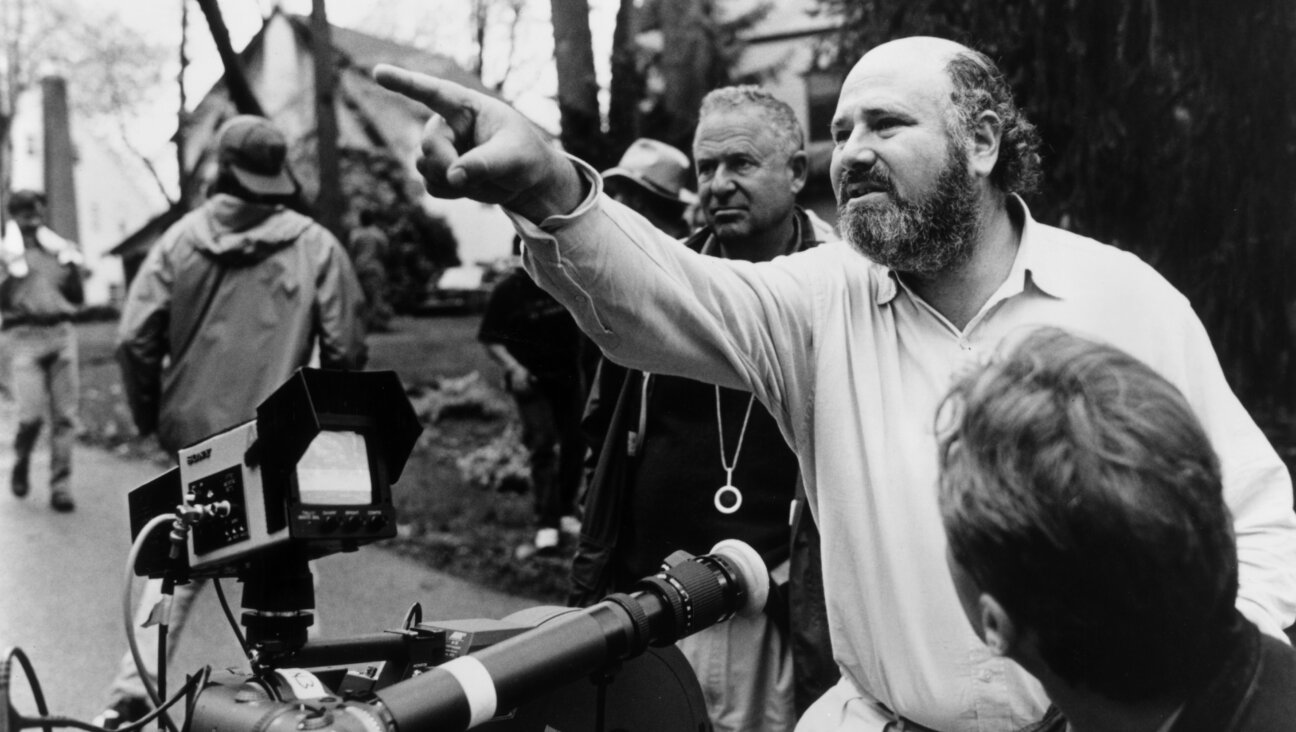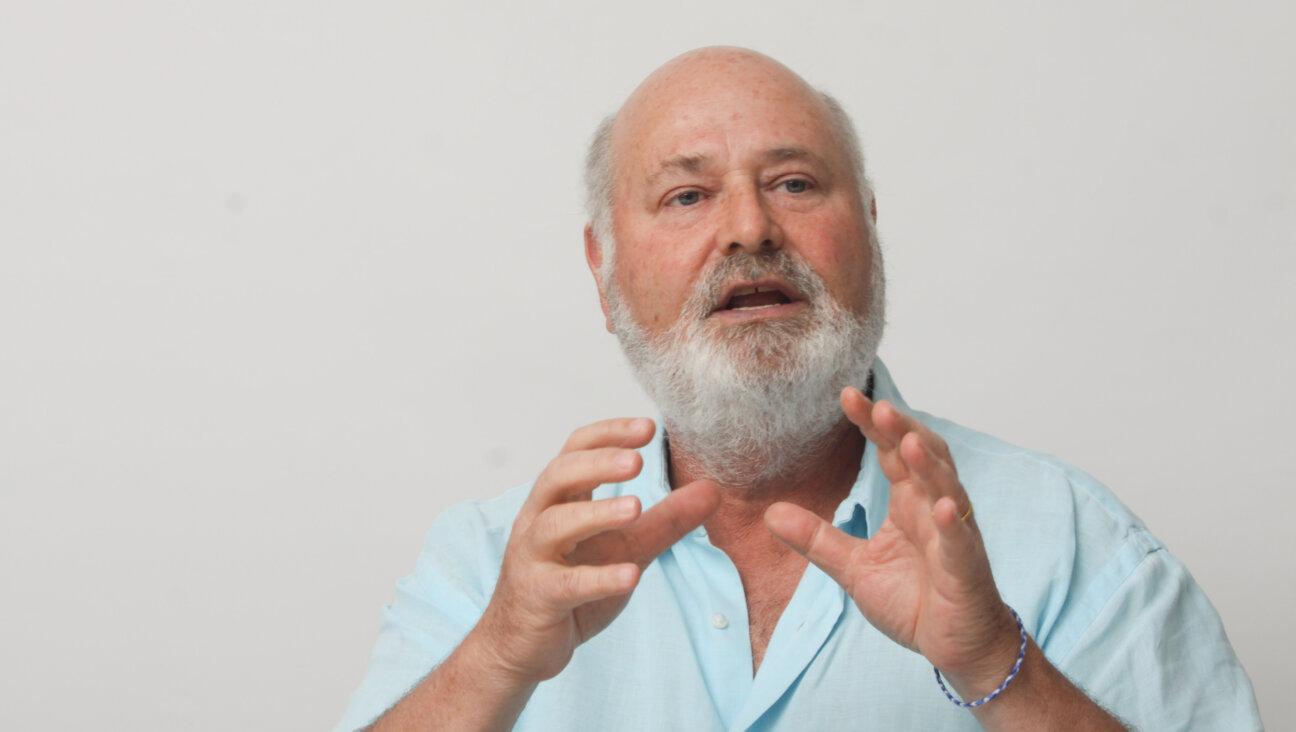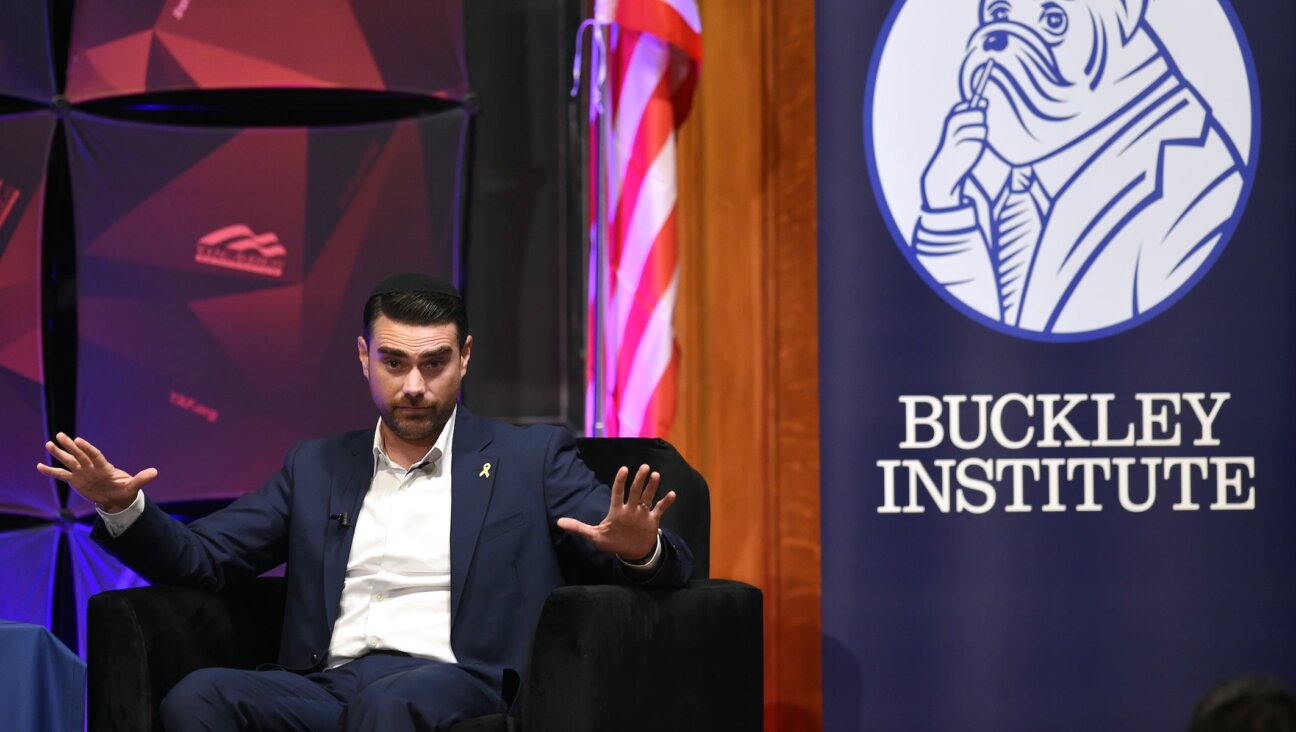Witness to the Prosecution of a Neo-Nazi in Germany

Image by Kurt Hoffman
On November 21, 2015, the day that Marcel Zech decided to flaunt his Auschwitz tattoo in a spaßbad in Oranienburg, I had the misfortune of being there as well, together with my nine-year-old son. Seeing that tattoo took my breath away. It permanently shattered the illusion that I have been living under since I arrived in Berlin, namely that Germany is a country in which the majority of people condemn right-wing extremism, and have wrestled with their past, and learned from it. There were hundreds of people in the swimming pool, but I did not see one of them so much as blink an eye at Marcel’s tattoo.
I was understandably relieved then, to discover that someone had posted a photo of the tattoo on Facebook and this had led to an investigation and a charge. I followed the news avidly. Others were pessimistic — they warned me that an Anzeige only meant that charges had been filed; it was not an indictment. Therefore it was a surprise when the indictment was announced, along with an accelerated trial. I shared the news joyfully; in response others warned me not to expect too much, a geldstrafe, a fine, at most.
Having witnessed this story from its beginning, I felt compelled to attend the trial proceedings. I asked a Jewish newspaper in Germany to provide me with press accreditation so that I could obtain a seat in the courtroom on December 22nd, exactly one month after Marcel had displayed his Brauner Speck (literally translates to brown bacon, but means something like Nazi love-handles) at the swimming pool. On the morning of the trial, my boyfriend walked me to the S-bahn. “Try not to freak out,” he said.
I waved off his concern; I felt fine about the trial, I thought I’d continue to feel fine. To my unpleasant surprise, when I arrived at the courthouse in the small town of Oranienburg, the street was empty except for a tight circle of sketchy looking characters out front. I recognized Zech’s profile immediately. He exchanged hugs and laughs with his neo-Nazi pals, all sporting similar chin beards and rat-tails, tattoos creeping out of cuffs and collars. I had to walk around them to get into the courthouse, and suddenly I wasn’t fine. I felt my heart pounding so hard it was almost like a drumbeat I could hear. My own fear disgusted me. I wanted to be cool, like the other press people already gathered in the courtroom, joking with their colleagues, laughing about the “Aryan specimens” outside. I found a seat in the front row, next to a kindly older journalist from the Süddeutsche Zeitung.
Zech was cheerful at his trial. He laughed, he leaned back in his comfy office chair; he draped an arm lazily around the chair next to him. He exchanged smiles with his many fans and friends in the courtroom. He understood, just like my friends had, that the trial would have no consequences for him. His buddies were there to back him up; if he had to pay a fine, they’d raise the money. His lawyer was Wolfram Nahrath, another right wing extremist descended from a long line of Nazis, eager to jump to the cause.
The journalist seated next to me, having ascertained that I was American and unfamiliar with German court proceedings, explained that in his view, this trial wasn’t about Zech, but about showing the public how important it was to stand up to people like him. The proceedings had been accelerated at the cost of punishment actually; the regular maximum was five years in prison, which was reduced to one year in a fast-tracked trial. But in the eyes of the State’s attorney, a quick reaction was more necessary and effective than a harsher punishment. This case was for show, the journalist explained, and pointed out how patient the judge was being with the press, giving the camera crews plenty of time to get their shots just right. After 10 minutes of flashes from all angles, the cameras left the room and the trial began.
It began in a straightforward manner: Zech was asked to confirm his identity and personal information, the prosecution stated the charge, and the witness who had identified and documented the public tattoo display was called forward to deliver his testimony. Alexander M. was the only witness to show; others had been summoned, namely staff at the pool, but had failed to show up. So he delivered an understandably frustrated testimony, explaining that he had been scandalized by the failure of the public to react to the tattoo and had therefore felt obligated to at least document it, and inform the staff. It took three tries, he explained, and then finally one staff member agreed to take care of it. As far as he was aware, Alexander said, Zech was ejected from the bath.
The defense attorney entered a statement at this point saying that Zech had not been ejected, but rather had left of his own free will, and that the witness had committed a punishable offense according to German law by photographing his client without permission, and then publishing the photo. The State’s attorney nodded and laughed. “I know this law,” he responded sarcastically.
“Do you deny that your client displayed his tattoo?” The Judge inquired.
“My client confirms that he was present on this day, wearing appropriate swimwear, and that the tattoo in police photographs was visible,” Nahrath responded.
The Judge wrapped up the introduction by reading from a list of Zech’s previous crimes — bodily assault, defamation, driving without a license, and impersonating a police officer. She detailed the list of fines he had received as punishment for those crimes. I knew some of the circumstances connected to those previous convictions, as I had done some research about Zech’s activities. I had read about the time he buried a swastika in front of Sachsenhausen concentration camp, and about the time when he tried to illegally obtain the identities of anti-fascist protestors, and about that time he tried to get a hold of addresses where refugees were being housed. But the judge did not mention the context for those convictions, so they read like the rap sheet of any average thug.
A recess was then granted so that the prosecution could prepare its address. The burden was on the State’s attorney to prove that Zech’s tattoo was a punishable offense according to Paragraph 6, section 1 of the CCIAL (Code of Crimes against International Law, 2002), which refers to an action that is likely to disturb the public peace, and which lists three reasons for an offense as punishable: the approval, the denial, or the belittlement of National Socialist activities.
I looked forward to the State’s attorney’s summation, but I was sorely disappointed. I would hesitate to call it a legal argument. It was more like a mixture of grandstanding and moralizing. It was bombastic, it was emotional, it was full of dramatic pauses and theatrical turns of phrase. “You trampled on our constitution,” he admonished Zech. “You trampled on the efforts of those who strive to protect it.”
Zech blew out his cheeks in a move that I can only describe as being similar to a raspberry. The State’s attorney admonished him for his lack of respectful comportment before continuing: “You trampled on the efforts of the people who are trying to build up Brandenburg, especially as a tourist destination.”
Was I going insane, I wondered, or had the prosecution really just complained that Zech was bad for tourism? Whether or not that was the case, how was that a matter connected to the law? When would the State’s attorney finally make his point?
Not yet, apparently. The prosecutor continued by issuing an impassioned plea to the German public to condemn such provocations, for the benefit of the rows of press eagerly taking notes. “Not only the law should object, but the public as well. The public must not allow such a provocation to pass without consequence, it must condemn all such objectionable behavior.”
Although I am a person whose emotions often get the better of me, I was appalled at what was clearly a cynical show for the media. Where was the dry, authoritative German culture when it was most needed? Where was the no-frills legal approach? You see, I must explain: German culture is one in which your average citizen will eagerly take you to task, or if possible report you, for the tiniest infraction. Your neighbor will reprimand you for biking on the wrong side of the street. They will hang angry notes on your mailbox if you put your trash in the wrong bin. They gladly take the burden of enforcement of all rules and regulations upon themselves. But when it comes to neo-Nazis, they suddenly look away. And when it comes to trying them in court, the rules become shockingly and uncharacteristically impotent and unenforceable. The famed culture of authority-worship breaks down into confusion and ineffectuality.
When the attorney finally got around to citing the law, he mumbled through what seemed to be a series of incoherent conclusions that even the most ignorant defense attorney could shred in an instant. The state’s attorney tried to support the charge of Volksverhetzung (incitement) by proving that the condition of “expressing approval of National Socialist activities” had been met, saying Marcel’s tattoo was clearly a product of deep political conviction and endorsed the systematic mass murder of Jewish people. He quoted a very recent amendment to that same law which stated that offenders who displayed motives and objectives characterized by racism, xenophobia and misanthropy are subject to a harsher punishment. However, since he was capped by a maximum of one year of imprisonment as a result of the accelerated proceedings, he explained, he was asking for 10 months in prison, without suspension.
Zech’s defense attorney opened his argument by claiming his client had already been judged in the public sphere, and that the German press had conspired to accomplish this. “But the German media does not represent the public opinion in this country,” he said to the rows of reporters, wagging his finger in rebuke. “Not at all!”
Unfortunately, Nahrath’s legal argument was concise and effective. It lasted less than ten minutes, whereas the prosecution had rambled unconvincingly for over thirty. He immediately accused the state’s attorney of numerous counts of speculation of his client’s motives and intentions, and called his impassioned speech ostentatious and pandering/and or cynical. He claimed that the prosecution was relying on a controversial amendment to the constitution that many in the legislature had criticized as an infringement on fundamental rights and therefore unconstitutional. Most important, he accused the state’s attorney of trying to stretch this law. If you want to change the law, he argued, a small-claims court is not the proper platform on which to attempt this.
Pained as I was to admit it, Nahrath made many strong points. How could the law be so impotent, I wondered, as to provide the defense attorney with so little to pad his argument? If it was unclear to the prosecution whether such an offense was punishable, how can one expect it to be clear to the average citizen? How is the legal system supporting the public in its efforts at condemnation, efforts that the State’s attorney was so insistently calling for?
Nahrath continued his rebuff by explaining that the state’s attorney had erred in assuming that the phrase Jedem das Seine was connected to the visual depiction above it. He pointed out that the witness had failed to notice the two words tattooed on Marcel’s upper back: Friendship binds, in the same exact script. Besides, he added petulantly, it’s not a tattoo of Auschwitz, as Auschwitz has an angular watchtower, and the tower depicted on Marcel’s back is rounded. At this point the courtroom burst into laughter, and Nahrath paused and turned to his audience with a look of deeply affected affront.
“Would any of you like to entertain yourselves outside?” he asked mockingly, much like a schoolteacher. “This is a courtroom. I am trying to concentrate here.”
He wrapped up his argument by saying that it was completely subject to interpretation whether the tattoo on Zech’s back expressed right –wing sensibilities, and that no one else besides the one witness had taken offense to it, therefore why should the court pay heed to the hysterical testimony of an angry witness with a personal vendetta? The judge calmly called for a recess, explaining that she would deliver her decision shortly. Zech, his lawyer, and his friends hurried out to the courtyard where they formed a tight ring, the lawyer looking out of place among the slovenly bunch with his suit and groomed hair. The cameras watched them from the window of the courtroom.
People like Marcel Zech are known for always traveling in groups; they are famed for being quick to violence and indifferent to consequences. They have rap sheets detailing all sorts of crimes, for which no real punishments have been meted out. There exists a widespread, well-founded fear of neo-Nazis, and with no threat of punishment to deter them, a citizen is ill-advised to intervene on his ownEven the sole witness at the trial could only post a photograph with an angry caption. The prosecutor was himself handicapped by a law that fails to lend itself to practical application; it goes without saying that German citizens are themselves aware of this dissonance. The law is the people, the people are the law. One cannot change without the other changing as well.
Fifteen minutes later, the Judge handed down a decision that appeared to be a conclusion based on her own legal analysis, and not necessarily a response to the arguments that had been heard. Six months suspended sentence, she announced, based on the charge of expressing approval of NS actions and disturbing the public peace. Again, no mention was made of Zech’s position as an elected representative in local parliament. The verdict meant that Zech would go free and continue living exactly as before, except he would now be required to keep his tattoo covered. Should he display it in public again, the punishment would be implemented, the Judge warned, before concluding the proceedings. Marcel and his friends left immediately, as if they had been dismissed from the principal’s office for cutting class. The whole trial had felt like nothing so much as a hearing for the schoolyard bully.
I watched the State’s Attorney give preening interviews to a row of cameras and microphones. He surely knew he had delivered the sort of moralizing that makes for good press. Outside, Zech’s attorney (who has already filed an appeal) refused to speak to the German press, having accused them during the trial of judging his client in the public sphere.
I’m not German, I said to him. I’m from the States.
“Sie sind Juden?” he asked.
And I felt my heart start to pound again, then my mouth went dry, and I felt as if I might accidentally swallow the ends of my words.
“Ich wurde von einen Auschwitz Überlebenden erzogen,” I answered.
He said to me: In the States, from where you come, this wouldn’t be punishable at all.”
“But there are no Auschwitz tattoos where I come from,” I answered.
Deborah Feldman is the author of “Unorthodox: The Scandalous Rejection of My Hasidic Roots.” She has been based in Berlin since November of 2015, working on a documentary film, researching a novel, and assisting with the translation of her work into German.
















